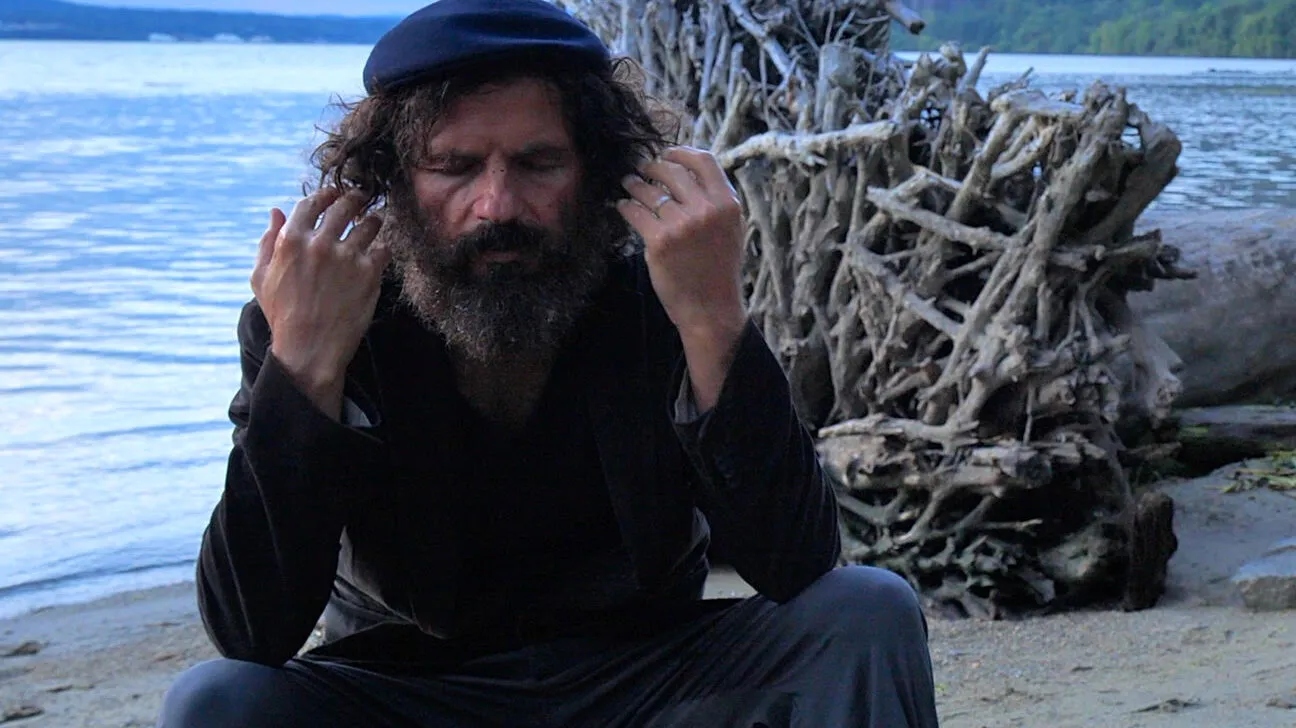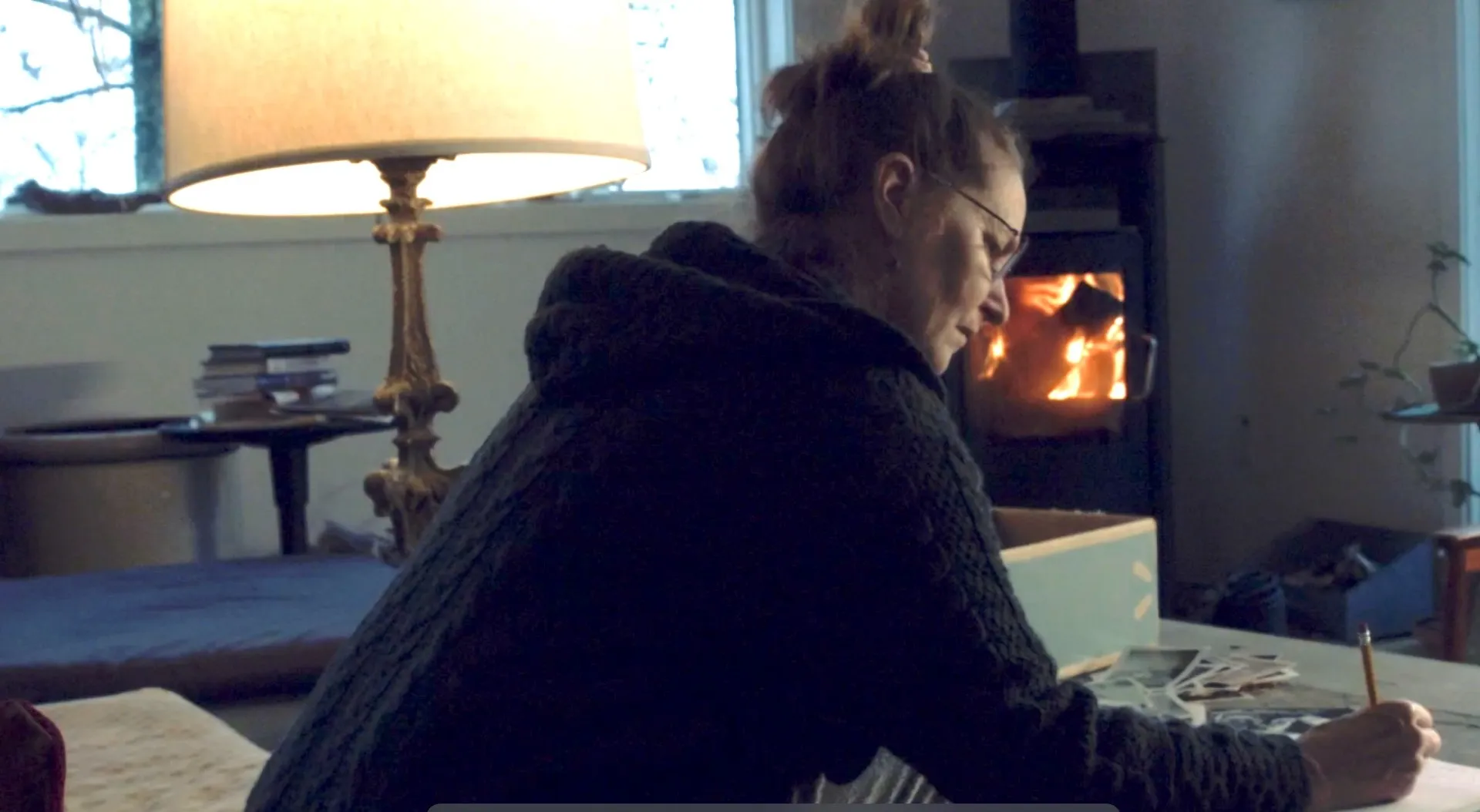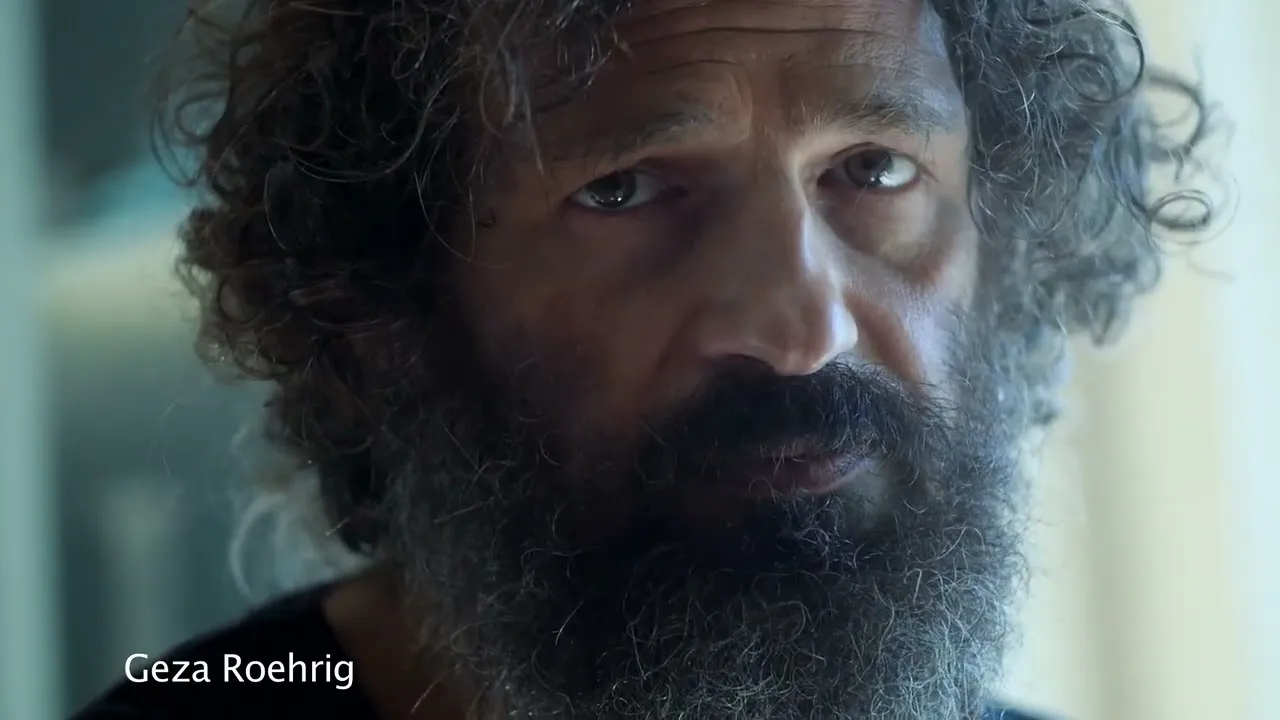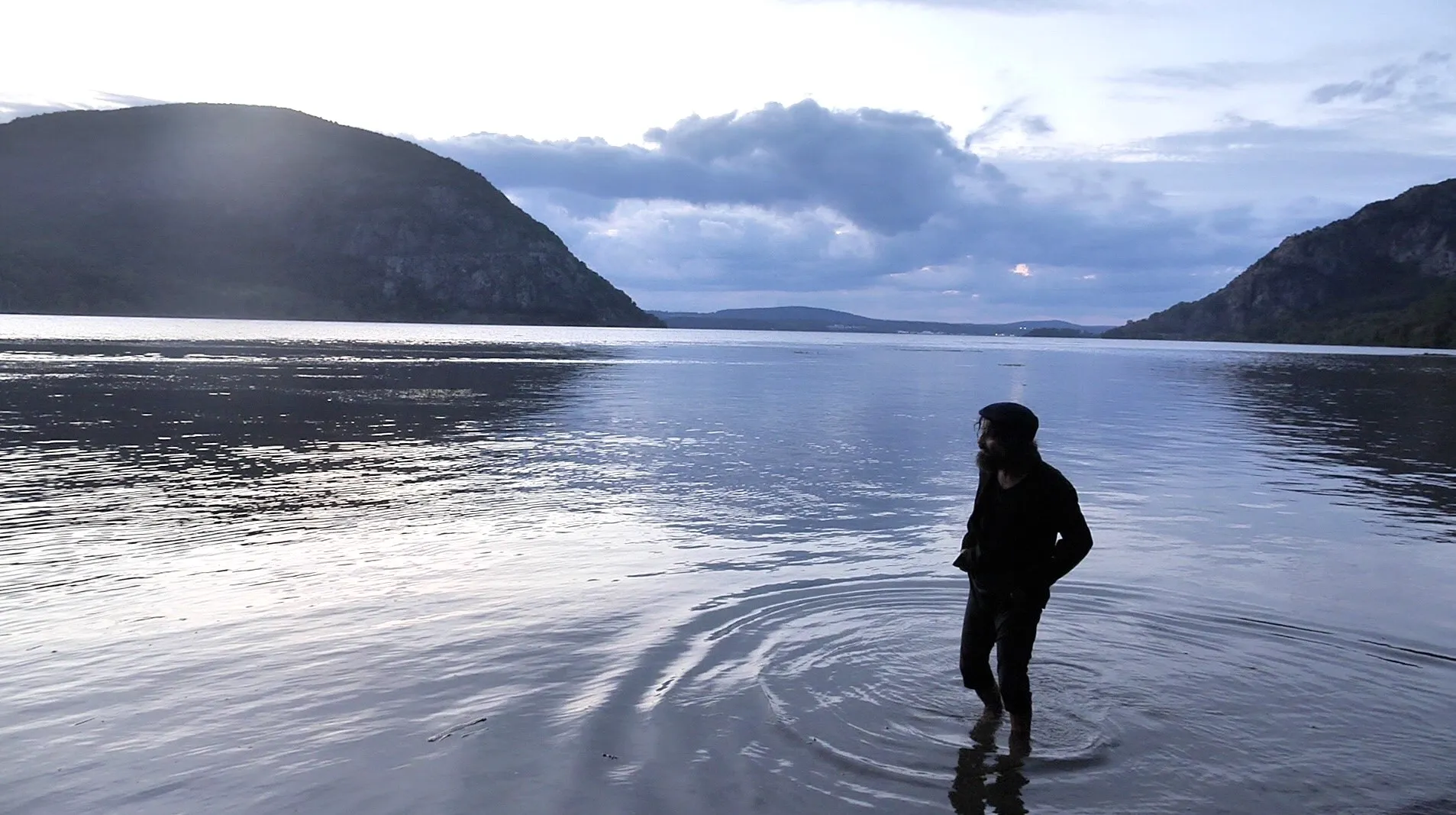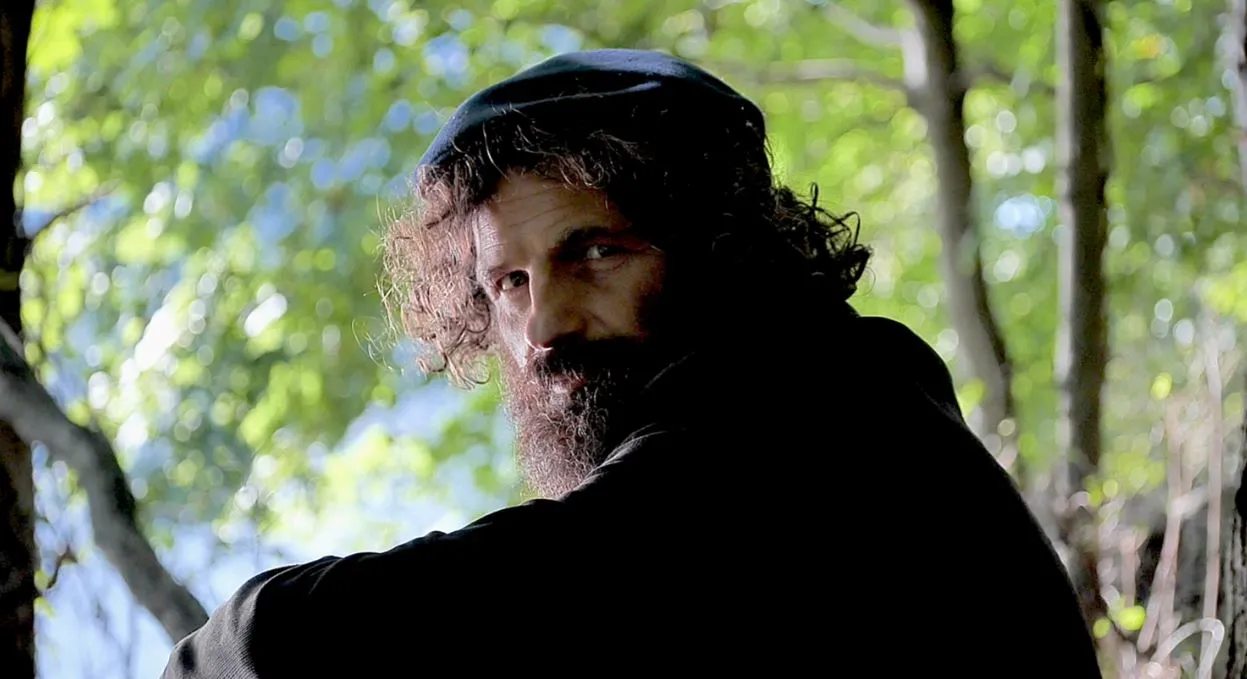The director of After: Poetry Destroys Silence, Richard Kroehling, creates an eerie journey through memory and grief in this experimental film that mixes poetry, documentary footage, and old records. The film’s central thesis is that poetry is a crucial tool for facing the unimaginable horrors of the Holocaust, not just an art form.
Kroehling disagrees with the famous idea put forth by philosopher Theodor Adorno that making art after such a terrible event is almost barbaric. Instead, he sees poetry as a necessary balm, a means by which the human spirit tries to articulate its traumas and maybe find comfort in the face of hopelessness.
The title strikes a chord, reminding us of the need to break the silence that comes with trauma through artistic expression and the burden of silence that comes with it. It suggests a duality: while silence can mean the weight of loss and absence, it also suggests the possibility that art can fill the void and say what has been left unsaid. In this film, silence serves as a blank canvas for the poets, a space where their words can create order out of chaos.
Kroehling invites the audience to grapple with existential questions that linger in the shadows of history: How do we bear witness to suffering? Through this lens. What exactly does art have to do with remembering? The film’s exploration of these themes resonates with an urgency that feels both time-honored and utterly modern in a world that is still haunted by echoes of past crimes.
The Alchemy of Words: Poetry as a Vessel for Healing
In the world of human suffering, where trauma often leaves the soul without a voice, poetry acts like alchemy, turning hopelessness into expression. After: Poetry Breaks Things Allowing poets to confront the shadows cast by the Holocaust, silence invites us into a space where language becomes a conduit for the unsayable.
The film shows how poetry can help to articulate the fragmented experiences of loss and survival through the works of people like Geza Rohrig and Alicia Suskin Ostriker. Ostriker’s words dive into the depths of trauma, illuminating the emotional landscapes that words can traverse, while Rohrig’s haunting verses resonate with the echoes of history.
Each poet featured transforms into a vessel for collective memory, turning individual grief into a shared narrative that breaks the silence surrounding atrocities. Every word they say is heavy with the weight of history, and each pause is a reminder of what has been lost. The film gets the essence of their performances. Recitation transforms into a ritual, a way to confront the void left by absence and claim that pain can be articulated, even if it is not fully understood.
This exploration of poetry refutes Theodor Adorno’s claim that writing after Auschwitz is barbaric as a reaction. Adorno said that no amount of art could capture the horror of the Holocaust. He thought that trying to make art after the fact might make suffering seem less important. After, however, disagrees with this point of view, saying that poetry is not an act of rebellion against the past but rather a necessary engagement. The film argues that poetry offers a crucial space for reflection—a way to remember, feel, connect, and eventually heal—in a world where language frequently falls short of the scope of trauma.
In this way, the film reclaims the power of artistic expression, placing poetry not as an imposition on memory but as a means of poetry with its complexities and embracing the uncertainty of trying to articulate the inexpressible. It suggests that poetry can act as a bridge, inviting us to confront our shared history of suffering with compassion and insight rather than distracting us from the gravity of history.
Form and Function: The Interplay of Image and Word
After: Poetry Destroys Silence develops into an engrossing tapestry, weaving the real parts of documentary filmmaking with the more abstract parts of poetry. This one-of-a-kind format serves as a vessel for narrative and a somber commentary on the themes of memory and trauma.
Richard Kroehling makes a space where the past is told and felt by combining the factual rigidity of the documentary with the fluidity of creative expression. Each poem becomes a living act of art that moves along with old pictures in the film, which invites viewers to engage with history in a way that goes beyond traditional storytelling.
With a color scheme that reflects the depressing tones of its subject matter, the film is a visual meditation on loss. The lines between memory and reality are blurred as archival footage is interspersed with poetic images, creating a dreamlike quality. The stark contrasts of black-and-white photos and the vibrant colors of modern life remind us of the pervasive influence of history on the present. With each frame carrying the weight of what has been lost, this interplay becomes a visual echo of the poets’ words.
The soundtrack that goes with this visual poetry makes the film’s emotional impact even stronger. The composers’ intricately woven music punctuates the readings, heightening the gravity of each line and allowing silence to linger—a recognition of the unimaginable void left by trauma.
An immersive experience is created by typewriters tapping and snow falling softly, inviting the audience to engage with the film on both an intellectual and a physical level. Kroehling creates a narrative that resonates with the echoes of history in this symphony of sight and sound, urging us to confront the shadows while looking for understanding in the interplay of art and memory.
Voices from the Abyss: The Poets’ Lament
Poetry Destroys Silence emerge as artists and witnesses, each weaving their narrative into the fabric of collective memory. There is a deep link to the Holocaust in Geza Rohrig’s work, which is known for its moving explorations of trauma.
His poem “Auschwitz” captures the eerie ghosts that linger in the spaces of memory and is a strong testament to the power of history. Rohrig’s words have an urgency that forces the audience to confront the uncomfortable truths of our past, turning grief into a shared experience that goes beyond time.
For Alicia Suskin Ostriker, too, who writes about the inner landscapes shaped by loss, she is a beacon of introspection. Her efforts show the complexities of survival and the fight to articulate the unspoken. She invites us to engage with the darker sides of human experience through her poetry, those times when language fails, but the need for expression is strong. Each line serves as a vessel for shared sadness and a reminder that poetry can navigate the rough seas of trauma where other narratives frequently fail.
The film doesn’t shy away from the personal stories that these poetic voices are based on. Janet R. Kirchheimer reads her poem “How I Knew and When.” The poem is about family and understanding that spans generations. Her words carry the weight of family history, inviting the audience to think about the complexities of memory and identity. The interplay of personal narrative and larger historical context improves the watching experience, allowing us to understand the emotional truths that statistics and historical accounts often hide.
After challenges viewers to confront the legacies of trauma that shape our present through these personal views, which fosters a profound sense of empathy. Even as we grapple with the darkness that history has wrought, the poets’ voices serve as conduits for greater understanding, urging us to engage with our shared humanity. Each addition serves as a reminder that many voices are still trying to articulate the inexpressible amid the silence of the past.
The Heart’s Echo: Engaging with Poetry’s Emotional Depth
The emotional resonance of the poets’ performances transcends simple recitation, becoming a visceral experience that invites the audience to traverse the chasms of memory and grief in The Heart’s Echo: Engaging with Poetry’s Emotional Depth In After: Poetry Destroys Silence. It’s like a prayer, and each recitation is full of the weight of personal and shared memories.
When spoken with raw intensity, feelings like sadness, anger, and strength are captured, turning abstract ideas into real-life experiences. While Alicia Suskin Ostriker’s lyrical cadence entices listeners into a contemplative state, forcing them to confront their understanding of trauma, Geza Rohrig’s haunting delivery evokes a visceral response long after the final line.
Film artfully cultivates a space where audience involvement is required. As viewers, we are not just passive observers; we are actively taking part in a trip of reflection that everyone else is on. Introspection about our histories and the legacies that shape our views of suffering are prompted by the poets’ words, which resonate within us. Listening becomes an invitation to engage with the themes of loss and survival, urging us to confront the hard truths of our shared humanity.
The film’s power to make people feel empathy makes this engagement even stronger. The essence of being human is captured in poetry in its most basic form, bridging the gap between the individual and the common. The poets invite us to recognize the echoes of our experiences as they navigate their traumas, creating a powerful connection beyond space and time. In this way, It catalyzes understanding of the enduring effects of trauma on the human spirit and a reflection on the past.
Echoes of the Past: Resonance in a Fractured Present
Silence is a moving reflection on the complexities of memory in today’s unstable political and social atmosphere. The film’s exploration of historical trauma serves as a mirror reflecting current problems, including rising anti-Semitism, systemic violence, and the shadows of intolerance that haunt our societies.
The poets’ words take on urgency in this context, urging us to confront the horrors of the past and the threats that linger in our present. The act of remembering becomes a form of resistance, a reminder that the lessons of history are not just old things that we should ignore but important narratives that need our focus.
The film also makes a major contribution to the ongoing conversation about the memory and representation of the Holocaust. Inquiries about how we respect the past while grappling with its implications for the future are raised as viewers are forced to engage deeply with the legacies of this dark chapter in human history after deepening our understanding of the Holocaust by fusing personal narratives with larger historical contexts, preventing the memories of those who suffered from being forgotten or ignored.
This film is a testament to the necessity of remembering, revealing that the echoes of history continue to shape our identities and moral landscapes, urging us to choose empathy over indifference in a world that is all too quick to forget.
The Weight of Words: Reflections on Trauma and Memory
After: Poetry Destroys Silence starts a deep trip through the confusing paths of trauma, memory, and artistic expression. The film expertly weaves together the personal and the collective, creating a rich tapestry that invites viewers to navigate the complexities of loss and survival.
Each poet becomes a guide, illuminating the shadowy corners of history with the light of their words through their moving acts. The exploration of how poetry serves as both a haven and a reckoning resonates deeply, revealing how art can articulate the inexpressible.
In this context, poetry’s enduring value as a key tool for dealing with historical and personal trauma becomes apparent. It acts as a salve for wounds that time alone cannot heal, giving a means to confront the past while encouraging a sense of connection in the present.
Poetry becomes a bridge spanning the chasms of despair through lyrical expression, allowing for a transformative dialogue between the individual and the shared experience of suffering. The film ultimately emphasizes the necessity of such artistic endeavors, telling us that in the face of darkness, the act of creation can illuminate, challenge, and heal.
The Review
After: Poetry Destroys Silence
After: Poetry Destroys Silence is a haunting exploration of memory and trauma that skillfully combines the visceral power of poetry with the harsh realities of history. The film elicits strong emotional resonance through the voices of its featured poets, inviting viewers to grapple with the legacies of the Holocaust while considering current issues of intolerance. Poetry is elevated as a crucial means of processing group grief and fostering empathy through its distinctive format and moving performances. In the face of darkness, this film serves as a powerful reminder of the power of artistic expression.
PROS
- Powerful performances by featured poets.
- Deep emotional resonance and engagement with historical trauma.
- Unique blend of documentary and poetic expression.
- Encourages reflection on contemporary issues of intolerance.
- Strong visual and auditory elements enhance the narrative.
CONS
- Some viewers may find the pacing slow.
- The poetic format might not appeal to all audiences.









































